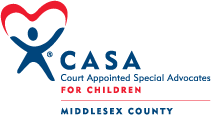
Throughout the United States, January is Human Trafficking Awareness Month. The goal is for every community to become more educated about the perils of human trafficking, how it affects our youth and what we, collectively, can do about it.
Modern day human trafficking takes many forms – the most prevalent being sex and labor trafficking. Individuals may be held against their will as domestic and/or sex workers, working for little or no pay, and with no way to find other employment due to the horrific circumstances they face. Girls and boys are forced into prostitution and isolated from people who could provide a means of escape. Victims of trafficking have few resources and most often go unrecognized by law enforcement, social services representatives and other service providers. Their hidden victimization allows perpetrators to offend under the radar making the significance of this crime more important to understand. Inevitably, human and sex trafficking is the modern-day form of slavery. We also know that trafficking happens in every community, both rural and urban, affecting at-risk youth. It is not unique to specified neighborhoods or demographic groups. We know this due, in part, to the National Human Trafficking Hotline. The Hotline provides victims and survivors of human trafficking with vital support and options to get help and stay safe. These options could include connecting callers with emergency shelter, transportation, trauma counselors, local law enforcement, or a range of other services and support. Based on reports by the federal government, 100,000 to 400,000 children are being trafficked in the United States annually. The difficulty in gathering solid, concrete statistics stems from the underground nature at which trafficking exists. Folks are not raising their hands-on street corners letting communities know they are being trafficked and held hostage. However, the Polaris Project has more concrete numbers for us to look at. The National Hotline has handled 51,919 cases since 2007, comprising one of the largest publicly available data sets on human trafficking in the United States. According to Polaris, “these aggregated, anonymized data help illuminate otherwise hidden trends, risk factors, methods of control, and other variables that allow this crime to manifest across the country. With these tools, we can better respond to and prevent human trafficking.”
So, what can be done to curb trafficking in our counties and communities?
The New Jersey Coalition Against Human Trafficking is working to bring about more awareness, understanding and help to communities throughout our state. Their website, njhumantrafficking.org, has online resources and downloadable toolkits for the public to learn and share concerning human and sex trafficking. Visiting their site and learning more is a great way to start.
Here are some other ways you can make a difference to help curb trafficking?
- Learn the indicators of human trafficking so you can help identify a potential trafficking victim. Human trafficking awareness training is available for individuals, businesses, first responders, law enforcement, educators, and federal employees, among others.
- If you are in the United States and believe someone may be a victim of human trafficking, report your suspicions to law enforcement by calling 911 or the 24-hour National Human Trafficking Hotline line at 1-888-373-7888.
- Be a conscientious and informed consumer. Discover your slavery footprint, ask who picked your tomatoes or made your clothes, or check out the Department of Labor’s List of Goods Produced by Child Labor or Forced Labor. Encourage companies to take steps to investigate and prevent human trafficking in their supply chains and publish the information, including supplier or factory lists, for consumer awareness.
- Volunteer and support anti-trafficking efforts in your community.
- Meet with and/or write to your local, state, and federal government representatives to let them know you care about combating human trafficking, and ask what they are doing to address it.
Jeff Warren CASA SHaW’s Community Outreach Coordinator

